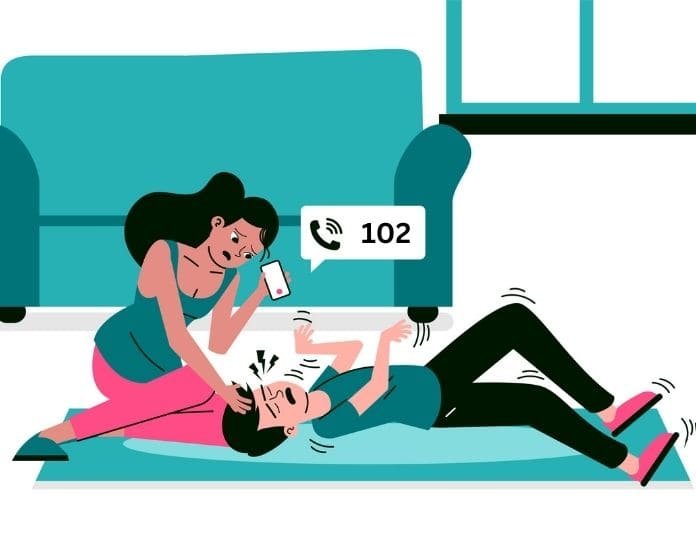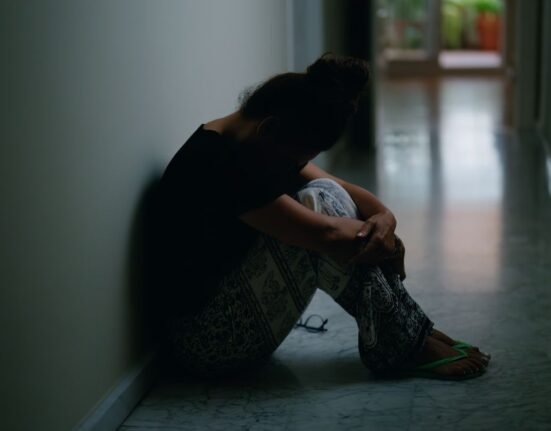Imagine this scenario – A person who is doing well, having a regular routine, behaving cordially with everyone, and taking care of all her/ his social and family responsibilities properly, suddenly starts behaving abnormally. What do I mean by abnormal behavior? The person’s eyeballs suddenly roll up, he/she starts screaming loudly and then goes silent, and his/her body starts shaking violently.
The person loses contact with reality about where he/she is and what he/she is doing. There is the sudden onset of jerky movements of the limbs and the person starts blabbering something incomprehensible. In some scenarios, the person throws around his/her limbs and it might end up hurting or hitting the people around while biting his/her own tongue and blood oozing out of the mouth. In the worst-case scenario, the person might end up hurling abuses at the people around, before suddenly falling to the ground and hurting their own self.
Read More: Epilepsy- A lifelong condition
From Stigma to Understanding
It would be easy to say today that this is the description of an attack of epilepsy, and it is a disease that needs to be treated. But things weren’t so easy in the medieval times. Back then the same person would be said to have been possessed by the evil spirits. The person would be labeled as the devil or a witch based on gender and the acts done by the person under the attack, the words spoken, would be considered as the acts of, the words of the devil.
Read More: Does Neighborhood Influence Epilepsy
If someone gets hurt or injured by the jerking limb during the attack, the person experiencing the convulsion, possessed by the devil, would be considered responsible for that and would be subjected to the punishment for the evil act. The next course of action obviously wasn’t treatment of epilepsy, rather it was probably the punishment of burning the person down to get rid of the evil spirit possessing the person. Though the past seems harsh, all we can do now is feel blessed to be born in an era where society is able to differentiate between the person and the disease as separate entities. Today rather than being subjected to punishment, the person would receive treatment.

Violence in Neurological and Psychiatric Illnesses
Today, people would be able to differentiate that the person normally wouldn’t hurt others and it’s the attack of epilepsy leading to jerky movements that has hurt people nearby. It took a long time for this change to happen in the context of neurological illnesses. But the good news is that it finally happened.
But the bad news is, the differentiation between the violence by the person and violence due to an underlying disease is difficult when it comes to the diseases of mind, the psychiatric illnesses.
Read more: 10 Tips to Deal with Childhood Epilepsy
Historical Perspective on Insanity and Criminal Responsibility
On June 20th, 1843, Daniel McNaughton shot Edward Drummond the private secretary of the then-prime Minister of the United Kingdom, Sir Robert Peel. McNaughton shot Drummond as he mistook Drummond to be Robert Peel. His actual target was the Prime Minister! McNaughton was experiencing persecutory delusions for 2 years before the shooting and had planned to target Peel out of the same delusions. This all came forward when McNaughton was taken for trial as Drummond died 5 days after being shot.
The trial lasted long, with the public having diverse opinions on the matter. Some believed the act was done by McNaughton while others said that it happened because of his illness. At the end of the trial, McNaughton was acquitted of murder; and considering the insanity, he was forcibly institutionalized for the rest of his life under the Criminal Lunatics Act 1800. This whole incidence led to the formulation of McNaughton Rules in 1843.
In Indian jurisprudence, the equivalent of McNaughton Rule exists as Section 84 of Indian Penal Code (IPC). Section 84 of IPC says – if a person of unsound mind does an offence, and he is in unsound mind while doing it or due to the unsoundness of mind, he isn’t able to understand that what he is doing is illegal and not able to understand the nature of his act, then it will not be considered as an offense and the person will not be held legally responsible for it. As the psychiatric disorders arising out of substance use are also considered as diseases of the mind, the extension of this law relating to substance use is Section 85 of IPC.
Section 85 of IPC and the Challenge of Determining Guilt
Section 85 says – If an intoxicated person, who was administered the intoxicating substance against his will or knowledge, commits an offense under intoxication and due to intoxication is not capable of understanding the nature of his act or that it is wrong or unacceptable or against the law, then he will not be held legally responsible for the act and the act will not be considered as an offense. Both the sections of IPC imply that it is not the act, but the intention behind the act that matters. A person who had the intention to commit the crime prior to the illness would be considered responsible for it even if the crime is committed under the influence of the disease or the substance.
Read More; The Difference Between Psychiatrists and Psychologists
An act committed due to the disease or the effect of the substance may not be considered as crime, but the onus of proving the same lies on the shoulders of the accused. Most of the time psychiatrists and psychologists are brought into the picture to help the legal team rule out and assess the mental capacity of the accused. The mind creates everything about the person, the personality, the emotions, the acts, the behavior, the responses, the delusions, and the hallucinations. Both the normal and the abnormal arise out of the same mind. That is why it becomes difficult to differentiate between the disease and the person.
Balancing Justice and Fairness
It becomes even more difficult when the opinion regarding the mental status of the patient has to be given retrospectively. No matter how slim but there is always the chance of an innocent sufferer of the mental illness getting punished rather than treated and a guilty criminal getting away and released into community by feigning the mental illness. Both scenarios are equally problematic for the society. The legal and medical teams need to work hand in hand to make sure that the justice is served well. The whole process brings up many challenges and questions, but most importantly GUILTY OR NOT GUILTY? That is the question.













Leave feedback about this